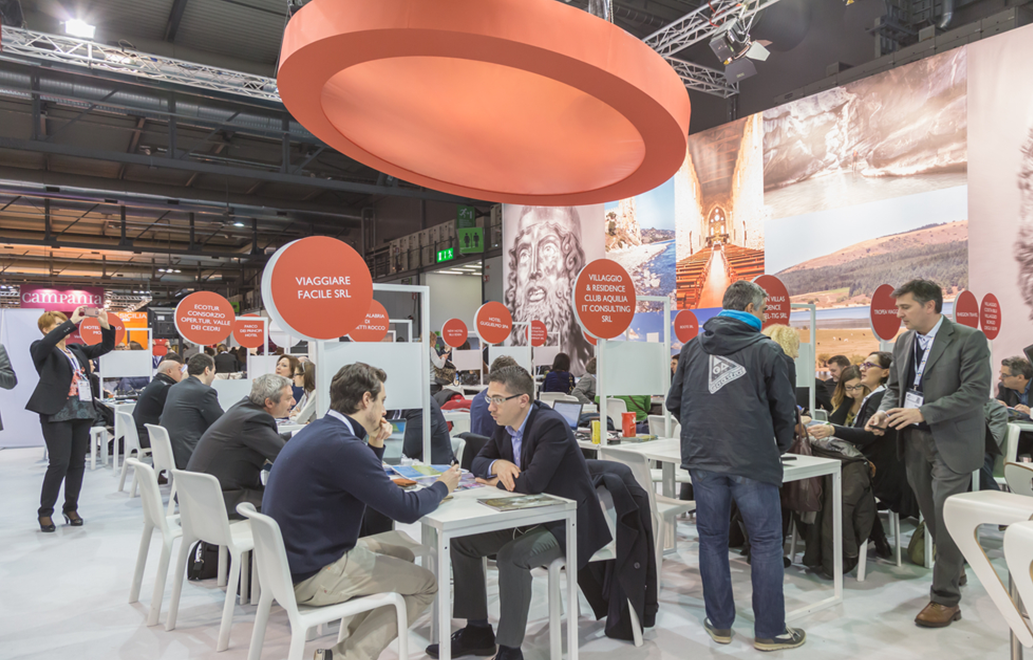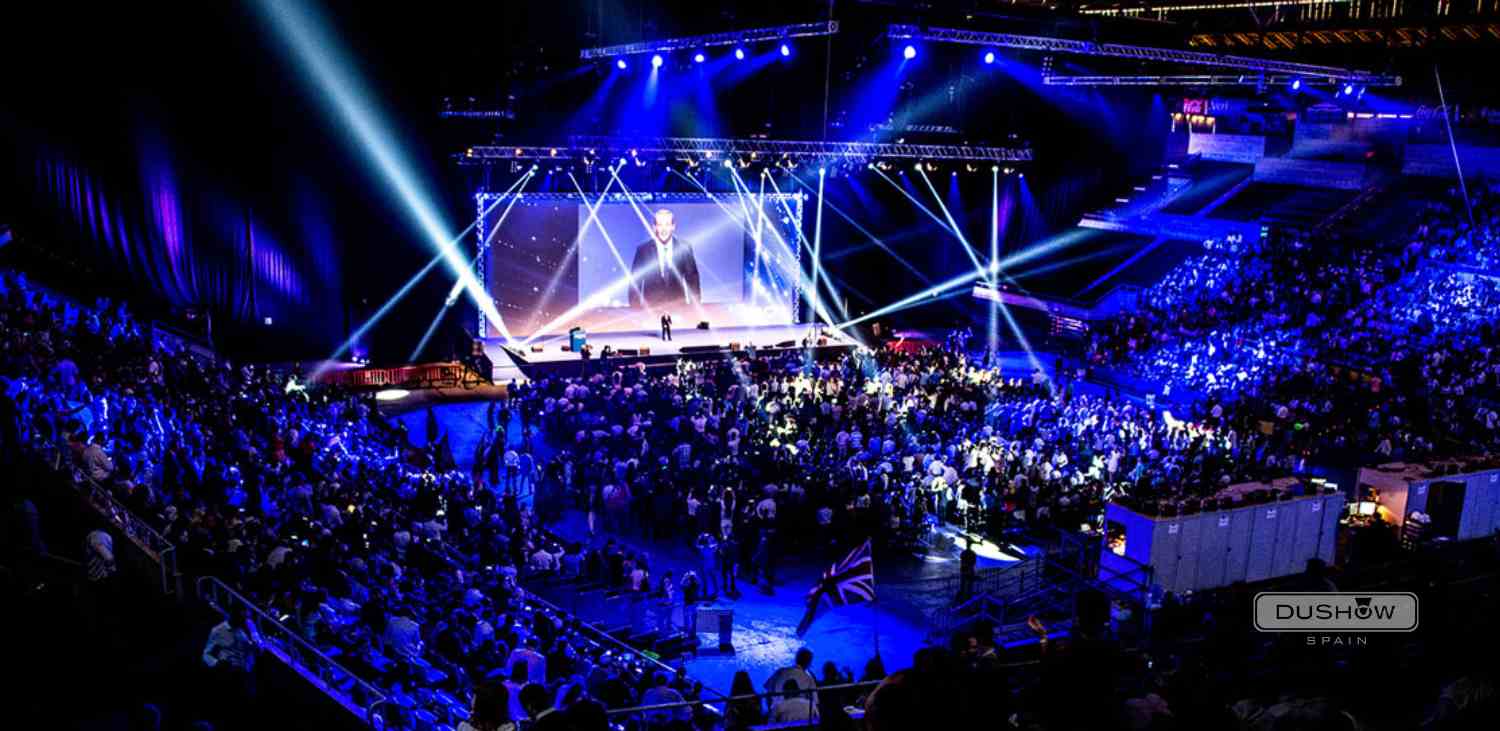How Event Production Works: A Comprehensive Look at the Refine
Event production is a complex and structured procedure that needs cautious preparation and execution. It begins with developing clear objectives and understanding the target audience. Each action, from budgeting to venue choice, plays an essential role in ensuring success. As the process unfolds, various aspects need to line up flawlessly. The subtleties of this complex operation frequently go undetected. What are the vital phases that contribute to a remarkable event?

The First Drawing Board
When starting on event production, careful preparation is essential to assure an effective outcome. The initial planning phase works as the structure for all subsequent initiatives. Throughout this phase, event producers need to specify the event's purpose and objectives clearly. Recognizing the target market aids customize the experience and messaging, guaranteeing importance and engagement.Producers should additionally take into consideration the event layout, whether it be in-person, online, or hybrid, as this will certainly influence numerous logistical aspects. Picking a suitable day and venue is crucial, as it influences ease of access and availability.Furthermore, assembling a reliable group is fundamental for separating responsibilities and simplifying interaction. Establishing a timeline with milestones guarantees all jobs are completed on time. This phase involves extensive research study, consisting of identifying potential difficulties and developing strategies to mitigate risks. Eventually, a well-structured first planning stage establishes the tone for an effective event production journey.

Budgeting and Resource Allocation
In event production, efficient budgeting and resource allotment are important for success - event production charlotte. Developing financial criteria sets the structure for all subsequent decisions, while resource distribution strategies guarantee that every element of the event is effectively supported. With each other, these aspects help keep control over expenditures and optimize making use of available resources
Developing Financial Parameters
Establishing financial specifications is crucial to the success of any type of event production, as it establishes the structure for effective budgeting and source appropriation. This procedure begins with defining the overall budget plan, which incorporates all elements of the event, consisting of place costs, food catering, and marketing. By identifying readily available funds, event coordinators can focus on expenditures and allot resources appropriately. On top of that, it is vital to conduct thorough marketing research to prepare for possible costs and recognize financing resources, such as sponsorships or ticket sales. Developing clear financial specifications also aids in threat monitoring, enabling organizers to allot backup funds for unforeseen expenses. Inevitably, a distinct budget functions as a roadmap, leading the event production team towards achieving their objectives while keeping monetary control.
Source Circulation Strategies
Efficient source distribution techniques are crucial for maximizing the effect of an event while sticking to budget plan constraints. Effective event production requires a precise approach to budgeting and source allowance. Coordinators have to focus on important elements such as location, wedding catering, and technology, ensuring that funds are assigned to areas that boost guest experience. A comprehensive spending plan ought to detail anticipated expenditures and identify locations for prospective cost financial savings, such as working out with suppliers or checking out sponsorship possibilities. Furthermore, tracking expenses throughout the planning process aids avoid overspending. By using critical resource circulation, event manufacturers can provide a remarkable experience while keeping fiscal duty, eventually adding to the overall success of the event.
Location Option and Logistics
Choosing the right venue is important to the success of any type of event, as it sets the phase for the general experience. Place choice includes assessing numerous aspects, including capability, ease of access, and place. Organizers have to consider the target audience and the nature of the event, making certain the venue straightens with the event's goals.Logistics play a significant role in this procedure, including plans for seating, audiovisual devices, and catering services. An appropriate place must assist in smooth flow for guests and staff, boosting engagement.Additionally, reviewing potential places for services like vehicle parking, washrooms, and fire escape is essential for safety and benefit. The timeline for protecting the location is likewise critical, as popular places might reserve swiftly - event production charlotte. Consequently, comprehensive preparation and timely implementation can inevitably add to a smooth event experience, making location selection and logistics fundamental elements of effective event production
Imaginative Concept Development
While the location establishes the physical phase, creative concept advancement shapes the event's identification and narrative. This procedure starts with recognizing the event's purpose and target audience, allowing event manufacturers to develop a compelling motif that resonates with guests. Brainstorming sessions usually consist of diverse perspectives, fostering innovative concepts that line up with the event's goals.Once a theme is established, visual elements such as shade palettes, signage, and style are developed to boost the overall atmosphere. Narration strategies may also be integrated to create my sources an engaging journey for individuals, guaranteeing a memorable important source experience. Furthermore, factors to consider pertaining to enjoyment, activities, and interactive components are aligned with the picked idea, enhancing the theme throughout the event.Ultimately, efficient imaginative concept advancement assurances that every aspect of the event functions cohesively, leaving a lasting impression on participants and meeting the event's objectives. This foundational job lays the groundwork for succeeding preparation and implementation phases.
Teaming up With Vendors and Vendors
Effective event production depends upon reliable cooperation with suppliers and suppliers. Picking trusted partners, working out agreements effectively, and making certain timely distributions are critical action in this procedure. Each of these factors contributes considerably to the total success and smooth implementation of an occasion.
Picking Reliable Allies
How can event organizers ensure a seamless production experience? Picking reputable partners is essential in attaining this goal. Event organizers need to conduct thorough research to identify vendors and providers with a tested record of quality. This consists of checking referrals, reviewing portfolios, and assessing customer comments. Coordinators must focus on partners who demonstrate professionalism and reliability, timely interaction, and a readiness to team up. Structure strong connections fosters trust and makes it possible for fast problem-solving during the event. In addition, it is useful to select regional vendors who understand the place and local logistics. Eventually, a successful event rests on the synergy between coordinators and their partners, guaranteeing that every aspect of production runs smoothly and efficiently.
Negotiating Agreements Efficiently
Effective negotiation of contracts is a crucial step in the collaboration in between event organizers and their vendors and suppliers. This procedure includes clear interaction of expectations, deliverables, and timelines. Planners need to perform detailed research on market prices and industry criteria to establish a standard for negotiations. It is essential to create a collaborative environment, urging open discussion regarding terms, prices, and potential backups. Coordinators should additionally focus on comprehending the supplier's abilities and restrictions to straighten their requirements successfully. Flexibility can result in mutually beneficial contracts, cultivating long-term connections. Crafting well-defined contracts that include certain performance metrics can assist ensure responsibility, inevitably bring about effective event execution and contentment for all events involved.
Making Certain Prompt Distributions
Timely deliveries are crucial for the smooth execution of any event, needing persistent collaboration between organizers and their vendors and suppliers. Efficient interaction is important, as it assists establish clear expectations relating to shipment timetables, amounts, and details needs. Organizers often develop thorough timelines to describe vital landmarks, ensuring all events stay aligned throughout the procedure. Regular check-ins with vendors can aid determine potential delays early, permitting positive options. Furthermore, constructing strong partnerships with go reliable suppliers promotes count on and liability, which can cause better solution and prioritization. By prioritizing these collaborative initiatives, organizers can decrease interruptions, thereby improving the total efficiency of event production and guaranteeing that all needed materials and solutions get here as prepared.
Advertising and Promotion Strategies
While organizing an event, the success of marketing and promo strategies can substantially affect attendance and interaction. Efficient strategies frequently include a combination of electronic advertising and marketing, traditional advertising and marketing, and grassroots outreach. Utilizing social media systems permits for real-time interaction and targeted marketing, getting to details demographics effectively. Email advertising and marketing projects can further engage possible attendees with tailored web content and reminders.Collaborations with influencers or sector leaders can also boost credibility and broaden reach. Producing appealing content, such as videos or blogs, helps to generate buzz and endure rate of interest leading up to the event. Furthermore, leveraging early-bird discounts and exclusive advantages can incentivize ticket purchases.Promoting with conventional networks, such as posters or local media, stays appropriate, particularly in community-focused events. An extensive technique that incorporates numerous strategies guarantees maximum presence and engagement, eventually adding to the event's success and the creation of a remarkable experience for guests.
On-Site Implementation and Management
On-site implementation and monitoring are essential parts that determine the overall success of an event. Reliable coordination during the event assures that all elements straighten with the planned schedule. Event managers manage logistics, consisting of vendor coordination, equipment setup, and visitor services. Checking timelines and resolving any unanticipated problems are essential for keeping a seamless experience.The personnel plays a considerable function, as experienced workers are in charge of numerous jobs such as registration, info circulation, and technological support. Communication amongst employee is vital; it cultivates a collective environment and enables quick resolution of challenges.Additionally, safety methods need to be followed, protecting the wellness of all guests. Post-event analyses are also component of on-site monitoring, supplying insights for future renovations. By concentrating on these aspects, event manufacturers can produce memorable experiences that fulfill or surpass attendee assumptions while achieving the event's objectives.
Regularly Asked Questions
How Do I Select the Right Event Motif?
Selecting the right event motif entails thinking about the target audience, event function, and venue. Investigating current fads and gathering input from stakeholders can also influence innovative concepts that reverberate and develop a remarkable experience.

What Prevail Mistakes in Event Production?
Typical mistakes in event production commonly consist of inadequate preparation, bad communication among staff member, spending plan mismanagement, neglecting to take into account the target market's demands, and stopping working to conduct an extensive post-event analysis for future enhancements.
How Can I Determine Event Success?
To measure event success, one can examine participant complete satisfaction, interaction degrees, budget adherence, and post-event responses. Key efficiency indications, such as ticket sales and social media sites interactions, likewise give useful understandings right into total efficiency.
What Should I Do if It Drizzles on the Event Day?
In case of rain on the day, the organizer ought to carry out backup strategies, such as protecting camping tents or relocating activities inside. Interaction with guests concerning modifications is important to guarantee a smooth experience despite weather challenges.
Just How Can I Make Certain Guest Interaction Throughout the Event?
